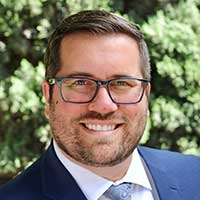Retire Happy and Fulfilled with the Drew Brees Mindset
The legendary quarterback's outlook on planning, preparation and execution can serve as a model to help retirees spend without anxiety and live a happier, more active and productive life.

Profit and prosper with the best of Kiplinger's advice on investing, taxes, retirement, personal finance and much more. Delivered daily. Enter your email in the box and click Sign Me Up.
You are now subscribed
Your newsletter sign-up was successful
Want to add more newsletters?

Delivered daily
Kiplinger Today
Profit and prosper with the best of Kiplinger's advice on investing, taxes, retirement, personal finance and much more delivered daily. Smart money moves start here.

Sent five days a week
Kiplinger A Step Ahead
Get practical help to make better financial decisions in your everyday life, from spending to savings on top deals.

Delivered daily
Kiplinger Closing Bell
Get today's biggest financial and investing headlines delivered to your inbox every day the U.S. stock market is open.

Sent twice a week
Kiplinger Adviser Intel
Financial pros across the country share best practices and fresh tactics to preserve and grow your wealth.

Delivered weekly
Kiplinger Tax Tips
Trim your federal and state tax bills with practical tax-planning and tax-cutting strategies.

Sent twice a week
Kiplinger Retirement Tips
Your twice-a-week guide to planning and enjoying a financially secure and richly rewarding retirement

Sent bimonthly.
Kiplinger Adviser Angle
Insights for advisers, wealth managers and other financial professionals.

Sent twice a week
Kiplinger Investing Weekly
Your twice-a-week roundup of promising stocks, funds, companies and industries you should consider, ones you should avoid, and why.

Sent weekly for six weeks
Kiplinger Invest for Retirement
Your step-by-step six-part series on how to invest for retirement, from devising a successful strategy to exactly which investments to choose.
When Drew Brees, star quarterback for the New Orleans Saints, broke the NFL record for career passing yards on Oct. 8, it was the culmination of decades of hard work, thorough planning and perseverance. Since high school, Brees worked to perfect his game. He continued to develop as a quarterback during 18 NFL seasons and refused to give up when sidelined by injuries.
Brees credits his record-breaking success to dedication and focus, not natural talent. Success in the NFL takes more than raw talent. It takes consistent and diligent work. After setting the record, Brees took a knee and told his children: "You can accomplish anything in life that you're willing to work for." He then told reporters, "Nothing is given — everything is earned."
Those who are working toward a golden retirement can benefit from thinking about their goals with the Drew Brees mindset. To achieve the retirement of your dreams, you need to consistently strive toward your goals before you leave the working world. When retirement comes, you must make the most of it with goal-directed activity.
From just $107.88 $24.99 for Kiplinger Personal Finance
Become a smarter, better informed investor. Subscribe from just $107.88 $24.99, plus get up to 4 Special Issues

Sign up for Kiplinger’s Free Newsletters
Profit and prosper with the best of expert advice on investing, taxes, retirement, personal finance and more - straight to your e-mail.
Profit and prosper with the best of expert advice - straight to your e-mail.
Retirement success is activity-directed
It's natural to think of retirement as a time to sit back and relax, but too little activity has actually been proven to make people unhappy. According to a MassMutual survey, of 905 retirees, 29% in excellent health and 51% in good health said they were not feeling fulfilled in retirement.
Though many retirees enjoy a slower-paced life, it's important to remain active. The happiest retirees have goals, events and experiences to look forward to. Retirement is a new phase of life with many possibilities, and making the most of your retirement is up to you.
It's not all about the money
Many people are surprised to learn that success in retirement isn't about the size of their 401(k). Though we all need to practice conscientious financial planning, a successful retirement is one where you have a strong sense of purpose and feel fulfilled. People who retire and lose their sense of purpose tend to be unhappy, regardless of how much money they’ve accumulated.
For many, money is the easy part of retirement. They saved diligently through their working years and built a solid nest egg. Now, they need to shift from the mindset of saving to planning their spending, although that transition can be challenging.
There is psychological stress many retirees feel when they deplete their savings. It's important to note that if you have saved for retirement and budgeted and planned correctly, spending in retirement shouldn’t bring anxiety.
Simple ways to enhance your retirement happiness
Having devoted so much of their lives to the workforce, many people feel a sense of loss after retiring. Though this feeling is natural, it should go away as you adjust to the retirement lifestyle and find new ways to occupy your time. If this persists, it can lead to a feeling of unhappiness and loss of purpose and productivity.
To prevent this, it's important to take control of your retirement and seek ways to make this phase of life rewarding. To make the transition more seamless, you should ease into retirement by reducing workload in the years prior to retirement. This allows you to gradually adjust to life beyond the working world.
Moreover, happy retirees get hooked on trying new things. Some take up new hobbies or even go back to school. Happy retirees focus on new activities, especially ones they didn't have time for while they were working. Try playing kickball, buy a ski pass, or take ukulele lessons. Hire a personal chef to cook at a dinner party or get in the habit of taking your grandkids to the movies once per week. Get creative with new activities and experiment along the way.
Volunteering can also be very rewarding. Rather than working for a paycheck, you can serve a cause you feel passionate about, and that can make retirement the most satisfying time of your life.
Retirement experts agree that when a sense of purpose is combined with close relationships with family members and friends, retirees truly enjoy their golden years.
A marathon, not a sprint
Like Drew Brees had to work for decades to set the passing record, retirees must continually work to make their retirements secure and fulfilling. This effort starts far in advance of retirement with proper preparation. To be financially ready for retirement, it is wise to work with a financial professional who can help manage investment risk, save on taxes and prepare an optimal estate plan.
With those items taken care of and your financial needs addressed, you are free to focus on pursuing the things in life that mean the most. A successful retirement should be designed to maximize health, wealth and quality of life. With a little hard work, thorough planning and perseverance, you can win the retirement lifestyle game.
Securities and advisory services are offered through USA Financial Securities Corp., Member FINRA/SIPC. A registered investment advisor located at 6020 E. Fulton St., Ada, MI 49301. Sterling Wealth Partners is not affiliated with USA Financial Securities. CA License #0G89727
Investment Adviser Representative of USA Financial Securities. Member FINRA/SIPC A Registered Investment Advisor. CA license # 0G89727 https://brokercheck.finra.org/
Profit and prosper with the best of Kiplinger's advice on investing, taxes, retirement, personal finance and much more. Delivered daily. Enter your email in the box and click Sign Me Up.

Scot Landborg has over 17 years of experience advising clients on retirement planning strategies. Scot is CEO and Senior Wealth Adviser for Sterling Wealth Partners. He is host of the retirement planning podcast Retire Eyes Wide Open. Scot is a regular contributor to Kiplinger.com and has been quoted in "U.S. News & World Report," Market Watch, Yahoo Finance, Nasdaq and Investopedia. He also formally hosted the nationally syndicated radio show "Smart Money Talk Radio."
-
 How to Turn Your 401(k) Into A Real Estate Empire
How to Turn Your 401(k) Into A Real Estate EmpireTapping your 401(k) to purchase investment properties is risky, but it could deliver valuable rental income in your golden years.
-
 My First $1 Million: Retired Nuclear Plant Supervisor, 68
My First $1 Million: Retired Nuclear Plant Supervisor, 68Ever wonder how someone who's made a million dollars or more did it? Kiplinger's My First $1 Million series uncovers the answers.
-
 How to Position Investments to Minimize Taxes for Your Heirs
How to Position Investments to Minimize Taxes for Your HeirsTo minimize your heirs' tax burden, focus on aligning your investment account types and assets with your estate plan, and pay attention to the impact of RMDs.
-
 Don't Bury Your Kids in Taxes: How to Position Your Investments to Help Create More Wealth for Them
Don't Bury Your Kids in Taxes: How to Position Your Investments to Help Create More Wealth for ThemTo minimize your heirs' tax burden, focus on aligning your investment account types and assets with your estate plan, and pay attention to the impact of RMDs.
-
 Are You 'Too Old' to Benefit From an Annuity?
Are You 'Too Old' to Benefit From an Annuity?Probably not, even if you're in your 70s or 80s, but it depends on your circumstances and the kind of annuity you're considering.
-
 In Your 50s and Seeing Retirement in the Distance? What You Do Now Can Make a Significant Impact
In Your 50s and Seeing Retirement in the Distance? What You Do Now Can Make a Significant ImpactThis is the perfect time to assess whether your retirement planning is on track and determine what steps you need to take if it's not.
-
 Your Retirement Isn't Set in Stone, But It Can Be a Work of Art
Your Retirement Isn't Set in Stone, But It Can Be a Work of ArtSetting and forgetting your retirement plan will make it hard to cope with life's challenges. Instead, consider redrawing and refining your plan as you go.
-
 The Bear Market Protocol: 3 Strategies to Consider in a Down Market
The Bear Market Protocol: 3 Strategies to Consider in a Down MarketThe Bear Market Protocol: 3 Strategies for a Down Market From buying the dip to strategic Roth conversions, there are several ways to use a bear market to your advantage — once you get over the fear factor.
-
 For the 2% Club, the Guardrails Approach and the 4% Rule Do Not Work: Here's What Works Instead
For the 2% Club, the Guardrails Approach and the 4% Rule Do Not Work: Here's What Works InsteadFor retirees with a pension, traditional withdrawal rules could be too restrictive. You need a tailored income plan that is much more flexible and realistic.
-
 Retiring Next Year? Now Is the Time to Start Designing What Your Retirement Will Look Like
Retiring Next Year? Now Is the Time to Start Designing What Your Retirement Will Look LikeThis is when you should be shifting your focus from growing your portfolio to designing an income and tax strategy that aligns your resources with your purpose.
-
 I'm a Financial Planner: This Layered Approach for Your Retirement Money Can Help Lower Your Stress
I'm a Financial Planner: This Layered Approach for Your Retirement Money Can Help Lower Your StressTo be confident about retirement, consider building a safety net by dividing assets into distinct layers and establishing a regular review process. Here's how.